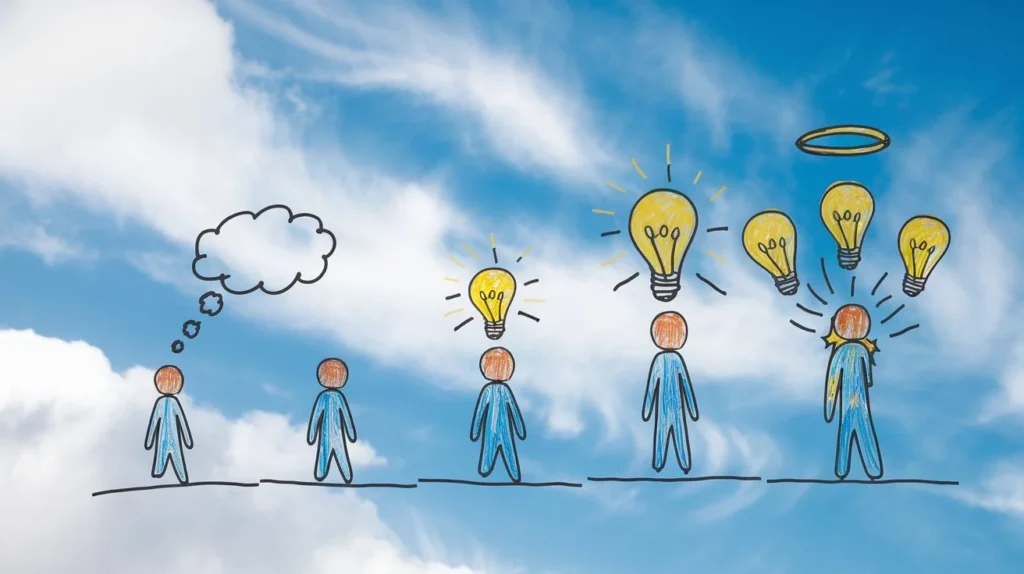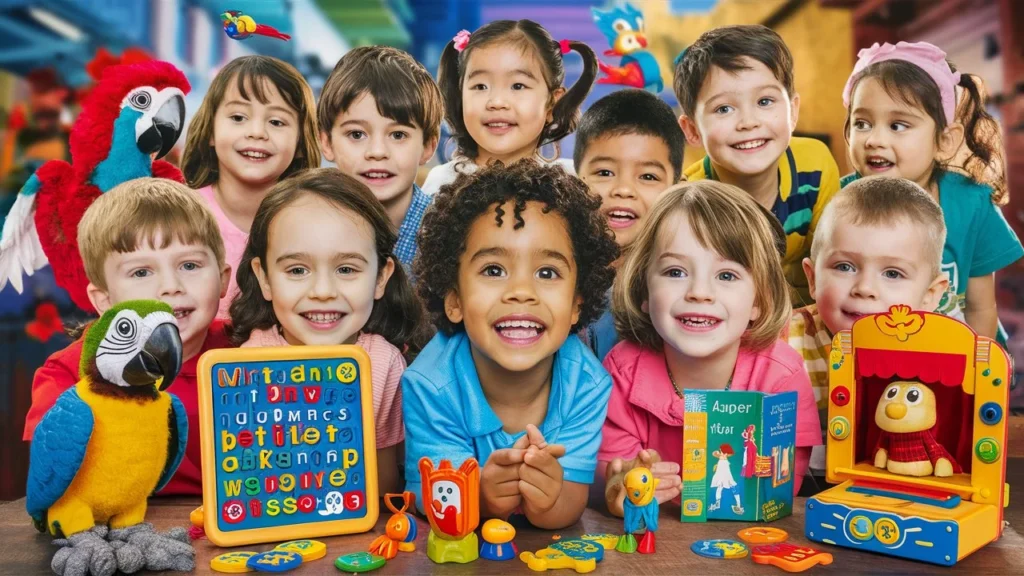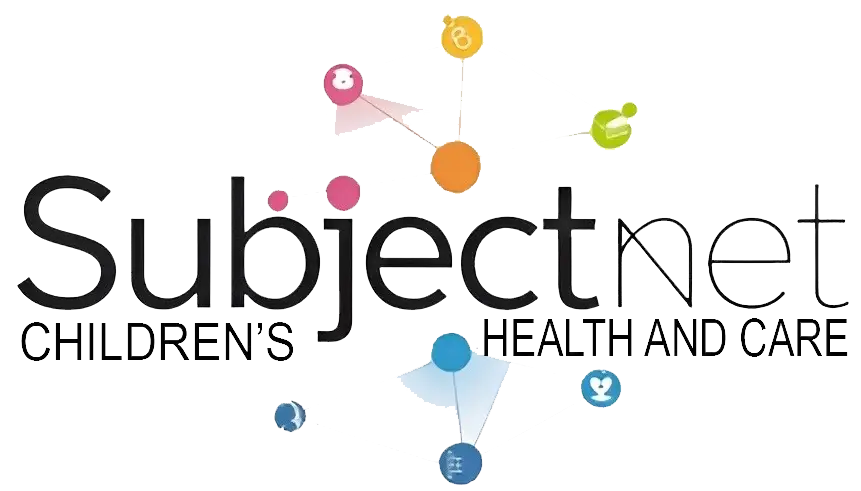Toddler Development Milestones: A Parent’s Guide
Table of Contents
As a parent, watching your child grow and develop is one of life’s most rewarding experiences. Between the ages of one and three, children undergo a whirlwind of changes, reaching a range of physical, cognitive, emotional, and social milestones. Understanding toddler development is essential for ensuring your child’s well-being, and it helps you identify the milestones they are expected to reach at different stages.
This guide will explore the key developmental milestones your toddler is likely to achieve, backed by cognitive research and expert insights. Additionally, we’ll offer practical advice for parents and address frequently asked questions (FAQs) on how to best support your child through this exciting time.
What are the key stages of toddler development?

Early childhood developmental milestones are specific physical, cognitive, emotional, and social achievements that most children reach by a certain age. These milestones serve as markers of normal child development, helping parents and health professionals track a child’s growth.
There are four main areas of development during early childhood:
- Physical development: Growth in body size and motor skills.
- Cognitive development: Learning, thinking, and problem-solving abilities.
- Social and emotional development: Interaction with others and self-regulation of emotions.
- Language and communication development: Understanding and using language to communicate.
Physical Development Milestones: Movement and Coordination
One of the most visible aspects of toddler development is physical growth. During the toddler years, your child will develop both gross motor skills (large movements like walking) and fine motor skills (small movements like picking up objects).
Gross Motor Skills Milestones
- 12-18 months: By the time your child reaches one year of age, they may begin walking independently. Some toddlers may still be crawling or cruising (holding onto furniture) as they build confidence in their walking abilities.
- 18-24 months: Most toddlers will be able to run, though they may still fall frequently. They can walk up and down stairs with help and start to kick a ball.
- 2-3 years: By age two, toddlers typically have improved balance and coordination. They can run more smoothly, jump with both feet, and begin to pedal a tricycle.
Fine Motor Skills Milestones
- 12-18 months: Toddlers begin to develop the ability to grasp objects using the pincer grasp (thumb and index finger). They can stack blocks, use a spoon, and point to objects.
- 18-24 months: They can turn the pages of a book, draw simple lines, and start using forks and cups more independently.
- 2-3 years: By age two, many toddlers can string large beads, complete simple puzzles, and use safety scissors.
Table 1: Key Physical Milestones by Age
| Age | Gross Motor Skills | Fine Motor Skills |
|---|---|---|
| 12-18 months | Walking independently, standing alone | Pincer grasp, stacking blocks, holding a spoon |
| 18-24 months | Running, kicking a ball, walking up stairs | Turning pages, drawing lines, self-feeding |
| 2-3 years | Jumping, pedaling a tricycle, improved balance | Stringing beads, cutting with scissors, drawing circles |
Cognitive Development Milestones: Growing Minds at Work

Cognitive development in toddlers refers to their ability to think, explore, and solve problems. During these years, toddlers rapidly expand their understanding of the world around them.
Cognitive Milestones
- 12-18 months: Toddlers engage in trial-and-error learning. They enjoy dropping objects and watching them fall, and they begin to understand cause and effect (e.g., pressing a button to make a toy light up). Object permanence (understanding that objects exist even when out of sight) is fully developed by this age.
- 18-24 months: Toddlers begin to demonstrate problem-solving skills, such as figuring out how to open a container to get a toy. They may also imitate adult behaviors, like pretending to cook or clean.
- 2-3 years: As they approach age three, toddlers can sort objects by shape or color, complete puzzles, and begin to understand the concept of time (e.g., “later” or “tomorrow”). Their ability to follow two-step instructions also improves.
Table 2: Cognitive Milestones by Age
| Age | Cognitive Milestones |
|---|---|
| 12-18 months | Object permanence, trial-and-error learning |
| 18-24 months | Problem-solving, imitating adult behaviors |
| 2-3 years | Sorting by color/shape, understanding time concepts |
Social and Emotional Development Milestones: Building Relationships
Social and emotional development during toddlerhood is crucial for forming relationships and learning to manage emotions. Toddlers begin to show signs of independence, but they still seek comfort and security from their caregivers.
Social and Emotional Milestones
- 12-18 months: Toddlers start to express a wider range of emotions, such as joy, frustration, and affection. They may have strong attachments to caregivers and experience separation anxiety.
- 18-24 months: During this period, toddlers may begin to assert independence by saying “no” frequently. They may also start to engage in parallel play (playing alongside but not with other children).
- 2-3 years: By age two, toddlers are developing empathy. They may offer comfort to a friend who is upset and begin to engage in more interactive play, such as taking turns or sharing toys.
Table 3: Social and Emotional Milestones by Age
| Age | Social and Emotional Milestones |
|---|---|
| 12-18 months | Expressing a range of emotions, separation anxiety |
| 18-24 months | Saying “no”, parallel play |
| 2-3 years | Developing empathy, interactive play |
Language and Communication Development: The Power of Words

Language development is one of the most exciting aspects of toddler growth. During these years, children move from saying a few words to speaking in short sentences, and their understanding of language expands dramatically.
Language Milestones
- 12-18 months: At this stage, toddlers typically have a vocabulary of around 10-20 words, which includes simple words like “mama” or “ball.” They can follow simple instructions (e.g., “Come here”) and point to objects when asked.
- 18-24 months: By age two, toddlers often have a vocabulary of 50-100 words and begin to combine two words to form short phrases (e.g., “more juice”). They can follow simple two-step instructions and understand the names of familiar people and objects.
- 2-3 years: At this stage, toddlers are rapidly expanding their vocabulary, often learning new words daily. They can form three- to four-word sentences and start asking simple questions like “What’s that?”
Table 4: Language Milestones by Age
| Age | Language Milestones |
|---|---|
| 12-18 months | 10-20 words, following simple instructions |
| 18-24 months | 50-100 words, combining words into phrases |
| 2-3 years | 3-4 word sentences, asking simple questions |
How to Support Your Toddler’s Development
As a parent, there are many ways you can support your toddler’s development in each area. Below are some tips for encouraging growth:
Physical Development
- Encourage your toddler to move by providing plenty of opportunities for active play, such as running, climbing, and playing with balls.
- Offer toys that promote fine motor skills, like stacking blocks, puzzles, or playdough.
Cognitive Development
- Provide toys that challenge your child’s thinking, such as shape sorters, building blocks, and simple puzzles.
- Encourage pretend play by offering dress-up clothes, kitchen sets, or dolls to stimulate imagination.
Social and Emotional Development
- Offer comfort and security by establishing consistent routines, especially for bedtime and mealtime.
- Encourage social interactions with peers through playdates or visits to the park.
Language Development
- Read to your toddler daily and talk to them frequently, even if they are not speaking much yet. Naming objects, describing activities, and singing songs can all help build vocabulary.
- Encourage them to express their needs and desires using words, rather than gestures or crying.
Tracking Development: When to Be Concerned
While every child develops at their own pace, it’s important to recognize potential developmental delays. If your child is missing key milestones, such as walking by 18 months or speaking at least 50 words by age two, it may be helpful to consult with a pediatrician. Early intervention services can offer additional support if needed.
Signs to Watch For:
- Limited eye contact or response to sounds
- Lack of interest in playing with toys or other children
- Trouble walking or moving by 18 months
- Difficulty following simple instructions
- No spoken words by 18 months
FAQs: Common Questions About Toddler Development
1. How can I help my toddler develop language skills?
Engage in frequent conversations with your toddler, read books together, and sing songs. Be patient as they learn to form sentences, and avoid correcting every mistake—they’ll improve with practice.
2. What should I do if my child isn’t walking by 18 months?
If your toddler is not walking by 18 months, consult your pediatrician. Some children are late bloomers, but an evaluation can rule out any underlying issues.
3. How much sleep does a toddler need?
Toddlers typically need between 11-14 hours of sleep per day, including naps. Establishing a consistent bedtime routine can help ensure they get enough rest.
4. How can I encourage my toddler to play with other children?
Encourage social interactions by arranging playdates and trips to the park. Be patient as toddlers learn to share and take turns—these skills take time to develop.
5. What if my toddler doesn’t hit all the milestones exactly on time?
Every child is different, and it’s common for toddlers to reach milestones at their own pace. However, if you’re concerned about your child’s development, it’s always best to consult a healthcare professional.
Conclusion
Toddlerhood is a time of rapid growth and change. By understanding the developmental milestones in physical, cognitive, social, emotional, and language development, parents can better support their child’s progress. Stay informed, be patient, and enjoy watching your child thrive during these important early years.
References
- American Academy of Pediatrics. (2019). “Cognitive and Physical Development in Toddlers.”
- Centers for Disease Control and Prevention (CDC). (2020). “Important Milestones: Your Child by Three Years.”
- Harvard University Center on the Developing Child. (2021). “The Science of Early Childhood Development.”
- National Institute of Child Health and Human Development (NICHD). (2018). “Child Development Basics.”
- Piaget, J. (1952). “The Origins of Intelligence in Children.”







